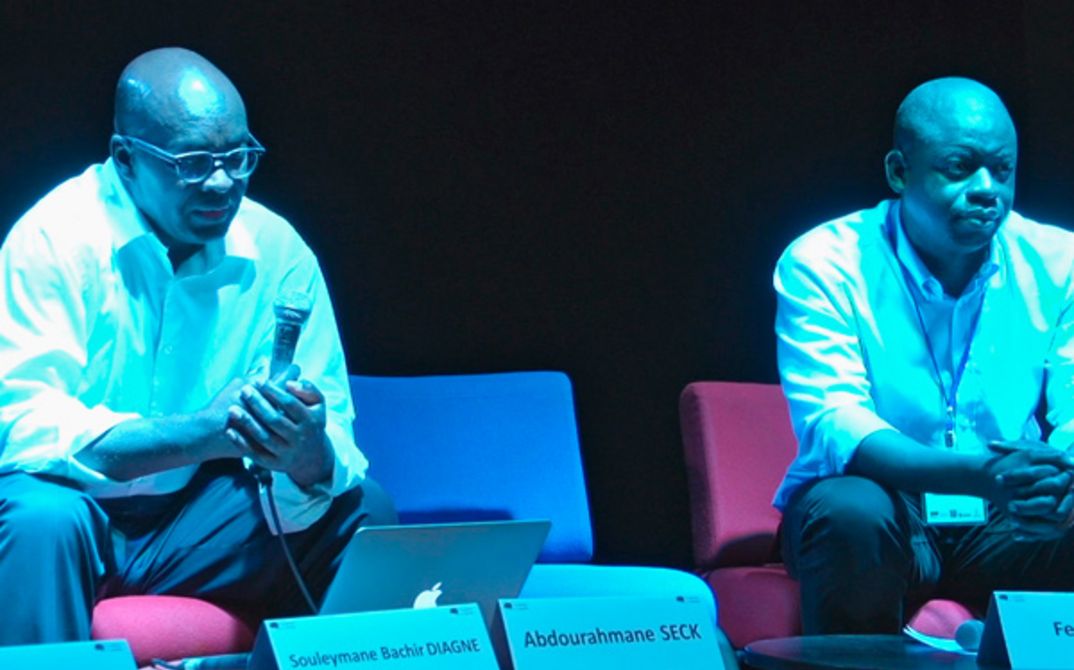104 min. French.
In October 2016, Senegalese economist, musician and poet Felwine Sarr founded the “Ateliers de la Pensée”, the so-called workshops for thought, together his friend political scientist Achille Mbembe. Over four days in Dakar, they gathered together leading Senegalese intellectuals including Lydie Moudileno, Romuald Fonkoua and Nadia Yala Kisukidi for a long overdue theoretical exchange on the current issues that affect Africa – and thus also the future of planet Earth.
If “Western philosophy” is a pleonasm, how can common epistemes of contemporary thought be decolonised? If black people’s self-hatred in the aftermath of slavery has such a destructive effect, how can this force be weakened? What is the attraction of dystopias, and how does this attraction function in terms of the African continent’s potential? These are just some of the questions so clearly and brilliantly formulated in the workshop that it’s not possible to give simple answers to them. Bekolo documents and assembles scenes from this intellectual summit meeting to create a cinematic manifesto that aims to provoke a response far beyond the cinema auditorium. (Dorothee Wenner)
Jean-Pierre Bekolo was born in Yaoundé, Cameroon in 1966. Between 1984 and 1987, he studied Physics at the University of Yaoundé. He then moved to Paris in order to study Television Production (Editing) at the Institut national de l’audiovisuel (INA) in Paris, where he also studied Semiotics under Christian Metz. He made his first film, Quartier Mozart, in 1992. Alongside his work as a film director, Bekolo writes and publishes. He has also worked as a lecturer at the University of North Carolina, Chapel Hill, and at Duke University in Durham, North Carolina. Recently, Bekolo has been dividing his time among the USA, France, and Cameroon. In the summer of 2015, he was a fellow of the Berlin Artists-in-Residence Programme of the German Academic Exchange Service (DAAD).
